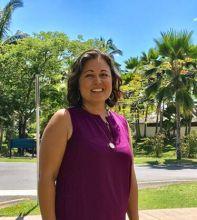-

Hear from Professor Monica Toft
Learn how Professor Monica Toft is shaping the study of global affairs and diplomacy at Fletcher.
Hear from Prof. Toft -

Explore Fletcher academics in action
Fletcher Features offers insights, innovation, stories and expertise by scholars.
Get global insights -
Get application tips right from the source
Learn tips, tricks, and behind-the-scenes insights on applying to Fletcher from our admissions counselors.
Hear from Admissions -

Research that the world is talking about
Stay up to date on the latest research, innovation, and thought leadership from our newsroom.
Stay informed -
Meet Fletcherites and their stories
Get to know our vibrant community through news stories highlighting faculty, students, and alumni.
Meet Fletcherites -

Forge your future after Fletcher
Watch to see how Fletcher prepares global thinkers for success across industries.
See the impact -

Global insights and expertise, on demand.
Need a global affairs expert for a timely and insightful take? Fletcher faculty are available for media inquiries.
Get in Touch
Rhea Moss-Christian GBA ‘23
Fletcher student and ocean fisheries management expert Rhea Moss-Christian reflects on her heritage, and amplifies the sacrifices, challenges and resilience of the Marshall Islands community.
I’ve been feeling incredibly proud of the Marshall Islands’ leadership on climate change, oceans, and nuclear legacy issues. We are a small, low-lying atoll nation and a large ocean state with a nuclear testing legacy. These realities put us on the front line of some of the world’s most pressing challenges like climate change, ocean health, and nuclear non-proliferation. But these are not things that define who we are as Marshallese people.
Marshallese people are skilled navigators, proficient at using ocean currents and stars to travel across the open ocean. Marshallese are rooted in a sense of family and community, no matter where we are, and those roots are linked to our land. Marshallese identity is connected to our land which is passed through our mothers and connects us to a jowi, or clan. No matter where we go, we always connect back to that identity, which is why the threat of sea level rise to inundate our islands is so serious. There are a handful of large Marshallese diaspora in the US and within those communities you see strong cultural and family ties, despite being thousands of miles away from their island home. I take great pride in that closeness and rootedness in the islands that cannot be separated by geography. It means that our culture and customs will endure.
Atoll life also makes Marshallese people resilient, and this resilience has endured through 12 years of nuclear weapons test by the United States, the effects of which continue to be felt today, and rising sea levels that are gradually swallowing people’s ancestral lands. Something that many people overlook or may not realize is the contribution that the Marshallese people have made to the world through the use of our islands for US nuclear weapons tests in the 1940s and 1950. Our sacrifice enabled a long period of world peace. Many Marshallese people suffered great hardships from the nuclear tests and those hardships continue, but we are steadfast and resilient people who continue to lead on global issues of importance. Climate change threatens our islands in similar ways to the nuclear tests and forces people from their homelands.
But the next generation of Marshallese is standing firm and speaking out for their right to live and thrive in their island home, safe from rising seas and lingering radiation. I am filled with pride when I see young Marshallese people leading both at home and on the world stage and making their voices heard, which is a real testimony to our resilience as a small population with close ties to our land and culture.


